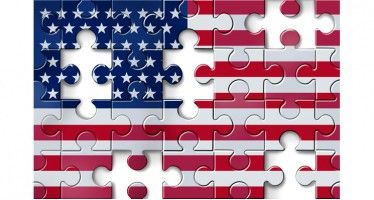Lawmakers lighting up $2 per pack cigarette tax hike
Like a re-lit cigarette, smoke again is rising from Senate Bill 768. By state Sen. Kevin de Leon, D-Los Angeles, the bill would place a new tax on cigarettes of $2 a pack, with an equivalent tax on cigars, pipe tobacco and other tobacco products.
With de Leon slated to become the next Senate president pro-tem later this year, SB768 enjoys increased clout behind it.
According to the bill, the money would go into “the Cigarette and Tobacco Products Surtax Fund, the Breast Cancer Fund, the California Children and Families Trust Fund, and the General Fund, to offset the revenue decrease directly resulting from imposition of additional taxes by this article.”
California’s current tobacco tax is is 87 cents a pack. So $2 on top of that would be a 230 percent increase. The bill’s language diverts some of the revenues to the “General Fund” because a new cigarette tax would reduce cigarette purchases due to people quitting and increased black-market smuggling. The reduced sales thus would cut the sales taxes that also are collected on cigarettes.
Even though Democrats have supermajorities in both houses of the Legislature, it might not be easy to get two-thirds voting margins in an election year. Moderate Democrats with lots of Republican voters might shy away from being labeled “tax increaser.”
Initiative
As a result, as a backup option, tobacco-tax advocates are firing up the California Tobacco Tax for Healthcare Initiative. It has been approved for circulation in California as a contender for the November 4, 2014 ballot. The initiative’s name is “The California Healthcare, Research and Prevention Tobacco Tax Act of 2014.”
The initiative also would raise taxes by $2 a pack, although the money would be disbursed differently from SB768. According to the Legislative Analyst, the money would go to anti-tobacco campaigns, cancer research and to abate budgets that lose money because of reduced cigarette sales.
In an estimate that also would apply to SB768, the Legislative Analyst estimates that a $2 a pack tax increase would increase revenues from $1.1 billion to $1.5 billion a year. However, after backfills, only $830 million to $1.4 billion would go to the specified projects.
Prop. 29
The new proposals are advancing less than two years after Proposition 29 was rejected by voters in June 2012. It would have increased taxes $1 a pack to fund cancer research, anti-smoking programs and law enforcement.
If the new tax increase goes on the November ballot, it also would have a tough time passing because it would be twice the amount proposed by Prop. 29. However, Prop. 29 barely lost, 50.3 percent to 49.7 percent, giving hope to tax increase proponents.
And SB768 is backed by the same coalition which supported Prop. 29: the American Heart Association, the American Lung Association, the American Cancer Society, the Service Employees International Union and Health Access California. All would benefit from the proceeds of the higher tax.
Black market
The Tax Foundation published a study in Jan. 2012 which found nearly 60 percent of the cigarettes sold in New York state are smuggled from other states, or come from Indian reservations with lower tobacco taxes. The study found that tobacco smuggling and the tax rate have risen in tandem since 2006, a strong indication that tax increases and smuggling go hand-in-hand.
The New York State tax on cigarettes has risen 190 percent since 2006, while the rate of smuggling increased 170 percent. New York’s current rate is $4.35 a pack, a fair amount above the $2.87 tax California would impose should a $2 new tax be enacted by either the Legislature or the voters. But it’s clear, as the Leg Analyst also noted, that smuggling would increase.
The National Taxpayers Union Foundation released an excellent study in August detailing the recent history of tobacco taxes in the states. It found:
* States with low cigarette taxes have lower overall tax burdens;
* Tobacco tax hikes are rarely used to cut other taxes;
* Tobacco taxes don’t forestall other tax increases;
* Tobacco tax hikes may encourage other tax hikes down the road;
* Cigarette taxes don’t spur economic growth.
Other new taxes
Californians already pay the highest gas, sales and income taxes in the nation. Yet California lawmakers, on top of the potential new tobacco tax, also are introducing proposals that create new taxes and fees, including:
* SB241 by Sen. Noreen Evans, D-Santa Rosa, would impose a 9.9 percent oil severance tax;
* SB622 by Sen. Bill Monning, D-Carmel, would create a one cent per ounce tax on soft drinks and sweetened beverages;
* SB700 by Sen. Lois Wolk, D-Davis, would create a five cent tax on single-use paper or plastic bags.
Related Articles
SCOTUS could shake CA’s redistricting schemes
A pair of high-profile cases taken up by the Supreme Court could invalidate California’s redistricting system, scrapping citizen-led efforts to free it up
Meet New Assembly Rabble-Rouser
JAN. 12, 2011 By KATY GRIMES Fed up with the increasing job-killing regulations, punitive state agencies, and the hefty taxes
Study finds tripling tobacco tax would ignite smuggling
One out of five cigarettes puffed in California is smuggled. Yet a proposed $2 tax increase on every pack of




